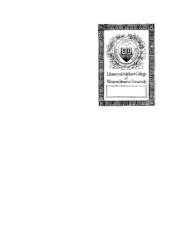You also want an ePaper? Increase the reach of your titles
YUMPU automatically turns print PDFs into web optimized ePapers that Google loves.
47<br />
One word notably so employed is canis, which is ordinarily of<br />
common gender because the natural difference of sex is so often<br />
forced upon one's attention owing to the intimate association of<br />
dog and man. When employed with absolutely no thought, however,<br />
of male and female, the gender of canis is determined according<br />
to the writer's whim or preference. A few examples will<br />
suffice: Varro (R. R. II, 9, 6) in discussing the purchase of dogs<br />
uses the masculine gender:<br />
"Magni interest ex semine esse canes eodem, quod cognati maxime<br />
inter se sunt praesidio," and again in treating of their food<br />
ays (II, 9, 8) : "Cibatus canis propior hominus Diligenter<br />
ut habeat cibaria providendum. Fames enim hos ad<br />
quaerendum cibum ducet." Once more in regard to buying dogs<br />
he says (II, 9, 5):<br />
"Videndum ne a venatoribus aut laniis canes emas, alteri quod<br />
ad pecus sequendum inertes; alteri, si viderint leporem aut cervum,<br />
quod eum potius quam oves sequentur. Quare a pastoribus<br />
empta melior, quae oves sequi consuevit, aut sine ulla consuetudine<br />
quae fuerit."<br />
In this passage both genders are used, yet each time dogs are<br />
mentioned the reference must be to both sexes. Toward the close<br />
of the chapter Varro speaks of protecting the watchdogs with<br />
collars armed with nails,<br />
"quod si lupus aliusve quis his vulneratus est, reliquas quoque<br />
canes facit, quae id non habent, ut sint in tuto."<br />
In these words both sexes are referred to without doubt, and<br />
furthermore, there immediately follows a discussion of the number<br />
of dogs necessary for the flock, and we meet with the words:<br />
"Villatico vero gregi in fundum satis esse duo, et id marem et<br />
feminam." If one may differentiate, then, between the word and<br />
the usage, one would say that canis, while not a true epicene,<br />
quite frequently receives that epicene usage, which Varro has<br />
described, namely, that in which there is no thought of sex.58<br />
Neue-Wagener present a small list of animal names with the<br />
double endings in -us and -a, which they say57 are epicenes to the<br />
extent that they may be used in either form for the species in<br />
'" L. L. IX, 55. See above p. 40.<br />
" I, pp. 927-930.
















